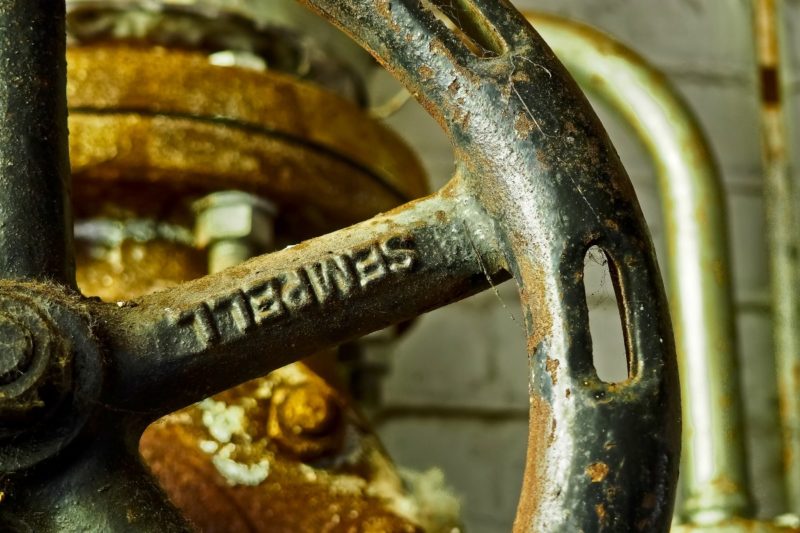This guide will help you determine why water heater noise when heating? It’s normal for your hot water system to make some noise when it’s on. The water heater creates certain noises that suggest a significant issue.
Humming, popping, or rumbling sounds are examples of these noises. This might feel like a small snap or crackle. However, showering with a loud heater might be a headache.
Therefore, what’s the root of the issue? Some of the noises might indicate an issue. As a result, you’ll have to figure out what’s causing the problem to keep the gadget from breaking down again. This work may annoy you. This tutorial will help you figure out why your water heater is making a lot of noise. Here are some of the likely causes and noises you’ll experience. My friends, there’s much more to learn, so let’s have fun!
Why Water Heater Noise When It’s Heating?
We’ll look at five scary noises your hot water tank can produce and what they imply to assist you in preventing a possibly hazardous and costly plumbing emergency. The water boil, expands,d, and passes past the sediment as the heater produces hot water. You’ll hear a rumbling sound, especially if the water moves through the ground. Here’s why water heater noise when heating:
#1. Rumbling noise
If you hear a rumble in the tank, the heater may have a lot of dust. While it may not be dangerous, it indicates that your heater is inefficient. Ensure the filth in the tank is removed to prevent this from happening. If you keep the residual on your heater, it might cause it to break down, resulting in further maintenance or replacing expenditures. And if you’re not familiar with plumbing, it is recommended that you have an expert plumber drain the unit yearly.
#2. Pops, hisses, or sizzle
When you switch on an electric hot water system, do you notice cracking, pops, hisses, or sizzle? It means that dirt blocked the parts of the tank that boil water. Ensure that the tank is clean and that the dirt on the heat exchanger is removed. Remove the object from the hot water system r, dip it in vinegar solution, and wash it. Make sure to wash up with a scrubbing brush. However, if the silt clogs the drain valve, the water tank’s water may be hard to empty.
As a result, you’ll need to get a replacement water heater. You can even use the heater till it begins to break down if you don’t have any imminent intention of replacing it. A leak detector built for water heaters should be used to locate a leaking tank. It raises an alert when it discovers a leak. These products are inexpensive and straightforward, and they can quickly discover leaks.
#3. Sizzling noise
If the hot electric heater makes a sizzling noise, water isn’t flowing freely into its tank. The issue may be traced back to the unit’s valves. Go to the pressure and temperature relief valves. When there is too much pressure in the holding tank, this mechanism discharges water. Turn off the water and electricity supply if you notice a sizzling noise from this device. Then, to make repairs, consult your local plumbing company. You may also examine the valve that regulates water flow inside the unit.
Check that the valves are open. Other lines for bending should also be checked. Look for any closed valves that need to be opened. You may also be interested to know about signs your hot water heater is going to fail.
#4. Shrieking, screaming, and singing
This screaming, shrieking, and singing category includes high-pitched noises like the chirping of a hot stovetop kettle. So when the flow of water via a valve is considerably limited, these noises are commonly heard. The pressure and temperature relief valve, which is often positioned on the exterior of the water tank, should be checked first. If the pressure within the tank grows too high, this valve allows water to exit.
If the noise is coming from this relief valve, cut off the gas, power, and water to the unit and hire a professional. The noise might be emanating from the intake valve, exhaust valve, or any adjacent water lines if it’s not emanating from the pressure and temperature relief valve. Look for any kinks or deflections in the pipes that might be preventing water from flowing freely. Hire a plumber if the lines are broken, or the noises persist.
#5. Hammering noise
The word “water hammer” is familiar to most people: It’s a pounding or hammering noise generated by the drainage system when water is pumped to unexpectedly halt or shift course, causing a pressure spike inside the system. It can rupture pipelines in residence, as well as cause the water tank to expand and distort. Consult a plumber for assistance and probably install a pressure-reducing valve Or water hammer fittings to handle repeated concerns.
It’s A Wrap!
We are happy to know that you all will learn why water heater noise when heating. Your water heater produces different sorts of noise, and its causes are mentioned above. The noise is an indication of a problem with your water heater. You may also want to read about how to change element in hot water heater and how to adjust temperature on hot water heater. Thank you for joining us at the end, friends!

